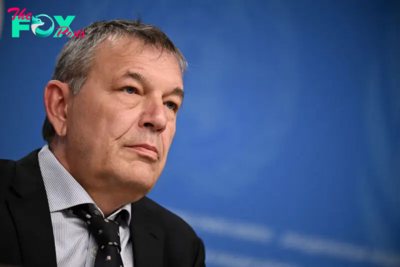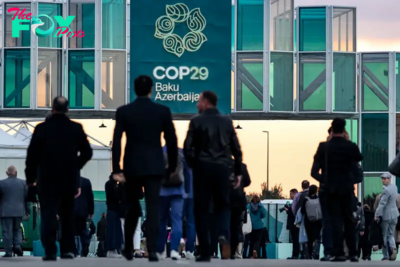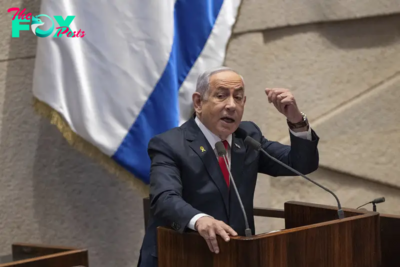World News
Israeli Troops Withdraw From Shifa Hospital After Two-Week Raid
DEIR AL-BALAH, Gaza Strip — The Israeli Military withdrew from Gaza’s largest hospital early Monday after a two-week raid that engulfed the facility and surrounding districts in fighting. Footage showed widespread devastation, with the facility's main buildings reduced to burned-out husks.
The Military has described the raid on Shifa Hospital as a major battlefield victory in the nearly six-month war and said its troops killed 200 militants in the operation, though the claim they were all militants could not be confirmed.
But the raid came at a time of mounting frustration in Israel, with tens of thousands protesting Sunday against Prime Minister Benjamin Netanyahu and demanding that he do more to bring home dozens of hostages held in Gaza. It was the largest anti-government demonstration since the start of the war.
Elsewhere, Syrian officials and state media said an Israeli airstrike destroyed the consular section of Iran’s embass y in Syria, killing a senior Iranian military adviser and several others.
The strike appears to signify an escalation of Israel’s targeting of Iranian military officials and their allies in Syria. The targeting has intensified since Hamas militants — who are supported by Iran — attacked Israel on Oct. 7.
Israel, which rarely acknowledges such strikes, said it had no comment.
The Iranian Arabic-language state television Al-Alam and pan-Arab television station Al-Mayadeen, which has reporters in Syria, said the strike killed Iranian military adviser Gen. Ali Reza Zahdi, who led the elite Quds Force in Lebanon and Syria until 2016.
In other developments, Netanyahu said he would shut down satellite broadcaster Al Jazeera immediately. Netanyahu vowed to close the “terror channel” after parliament passed a law Monday clearing the way for the country to halt the Qatari-owned channel from broadcasting from Israel.
Netanyahu accused Al Jazeera of harming Israeli security, participating in the Oct. 7 Hamas attacks and inciting violence against Israel.
Meanwhile, a second shipment of food aid arrived by sea in the latest test of a new maritime route from the Mediterranean island nation of Cyprus. One of the three boats could be seen off the coast, and Cyprus’ foreign minister said they had received permission to unload. The precise mechanism of delivery was not yet clear.
The fighting around Shifa showed that Hamas can still put up resistance even in one of the hardest-hit areas. Israel said it had largely dismantled Hamas in northern Gaza and withdrew thousands of troops late last year.
The raid also gutted a hospital that had once been the heart of Gaza’s health system but which doctors and staff had struggled to get even partially operating again after a previous Israeli assault in November.
Israel said it launched the latest raid on Shifa because senior Hamas operatives had regrouped there and were planning attacks. It identified six officials from Hamas’ military wing it said were killed inside the hospital during the raid. It also said it seized weapons and valuable intelligence.
The military said it killed 200 militants inside and outside Shifa, though it provided no evidence all were militants.
The raid triggered days of heavy fighting for blocks around Shifa, with witnesses reporting airstrikes, the shelling of homes and troops going house to house to force residents to leave.
After the troops withdrew, hundreds of Palestinians returned to search for lost loved ones or examine the damage.
Among the dead were Ahmed Maqadma and his mother — both doctors at Shifa — and his cousin, said Dr. Ghassan Abu Sitta, a Palestinian-British doctor who volunteered at Shifa and other hospitals during the first months of the war before returning to Britain.
The fate of the three had been unknown since they talked by phone with family as they tried to leave Shifa nearly a week ago and the line suddenly went dead. On Monday, relatives found their bodies with gunshot wounds about a block from the hospital, said Abu Sitta, who is in touch with the family.
Bassel al-Hilou said the bodies of seven of his relatives were found in the wreckage of a house near Shifa where they had been sheltering when it was demolished by a strike.
“There was a massacre in my uncle’s house,” he told The Associated Press. “The situation was indescribable.”
Mohammed Mahdi, who was among those who returned to the area, described a scene of “total destruction.” He said several buildings had been burned down and that he counted six bodies in the area, including two in the hospital courtyard, though it was not clear when they died.
Video footage circulating online showed the main buildings of Shifa charred and heavily damaged. Several witnesses said army bulldozers had plowed up a mass grave that had been dug in November in Shifa’s courtyard, leaving many bodies exposed.
At least 21 patients died during the raid, World Health Organization Director-General Tedros Adhanom Ghebreyesus posted late Sunday on X, formerly Twitter.
He said over a hundred patients were still inside the compound during the operation, including four children, 28 critical patients and many who suffered from infected wounds and dehydration.
The military denied that its forces harmed any civilians inside the compound. Israel has accused Hamas of using hospitals for military purposes and has raided many hospitals across the territory.
Critics accuse the army of recklessly endangering civilians and of decimating a health sector already overwhelmed with wounded.
Rear Adm. Daniel Hagari, the top military spokesman, said Hamas and the smaller Islamic Jihad group established their main northern headquarters inside the hospital. He described days of close-quarters fighting and blamed Hamas for the destruction, saying some fighters barricaded themselves inside hospital wards while others launched mortar rounds at the compound.
Hagari said the troops arrested some 900 suspected militants during the raid, including more than 500 Hamas and Islamic Jihad fighters, and seized over $3 million in different currencies, as well as weapons.
He said the army evacuated more than 200 of the estimated 300 to 350 patients and delivered food, water and medical supplies to the rest. Two Israeli soldiers were killed in the raid, the military said.
The military previously raided Shifa in November, after saying Hamas maintained an elaborate command and control center inside and beneath the compound. It revealed a tunnel running beneath the hospital that led to a few rooms, as well as weapons it said it had confiscated from inside medical buildings, but nothing on the scale of what it had alleged prior to that raid.
The war began on Oct. 7, when Hamas-led militants stormed into southern Israel, killing some 1,200 people, mostly civilians, and taking around 250 people hostage.
Israel responded with an air, land and sea offensive that has killed at least 32,845 Palestinians, around two-thirds of them women and children, according to Gaza’s Health Ministry. The ministry does not distinguish between civilians and combatants in its count. The Israeli Military blames the civilian toll on Palestinian militants because they fight in dense residential areas.
The war has displaced most of the territory’s population and driven a third of its residents to the brink of famine. Northern Gaza, where Shifa is located, has suffered vast destruction and has been largely isolated since October, leading to widespread hunger.
The aid ships that arrived Monday carried some 400 tons of food and supplies in a shipment organized by the United Arab Emirates and the World Central Kitchen, the charity founded by celebrity chef José Andrés. Last month a ship delivered 200 tons of aid in a pilot run.
Netanyahu has vowed to keep up the offensive until Hamas is destroyed and all hostages are freed. He says Israel will soon expand ground operations to the southern city of Rafah, where some 1.4 million people — more than half of Gaza’s population — have sought refuge.
But he faces mounting pressure from Israelis who blame him for the security failures of Oct. 7 and from some families of the hostages who blame him for the failure to reach a deal despite several weeks of talks mediated by the United States, Qatar and Egypt. Allied countries, including main backer the United States, have warned him against an invasion of Rafah.
Hamas and other militants are still believed to be holding some 100 hostages and the remains of 30 others, after freeing most of the rest during a cease-fire last November in exchange for the release of Palestinians imprisoned by Israel.
-

 World News2d ago
World News2d agoLandmark Bill to Ban Children From Social Media Introduced in Australia’s Parliament
-

 World News2d ago
World News2d agoAmerican and Australian Tourists Die in Laos After Drinking Tainted Alcohol
-
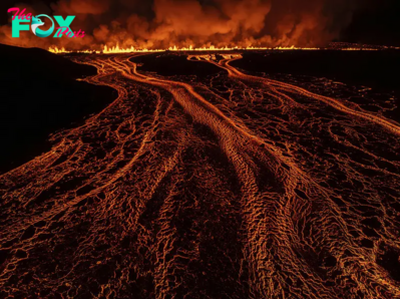
 World News3d ago
World News3d agoSee Photos of the Seventh Volcanic Eruption on Iceland’s Reykjanes Peninsula in 12 Months
-

 World News3d ago
World News3d agoMuhammad Yunus on the Race to Build Bangladesh 2.0
-
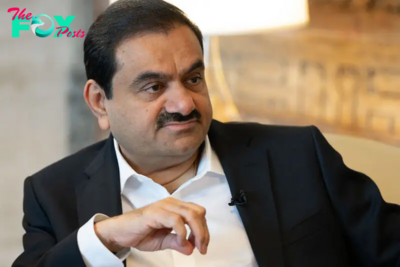
 World News3d ago
World News3d agoU.S. Charges Indian Billionaire Gautam Adani With Defrauding Investors
-
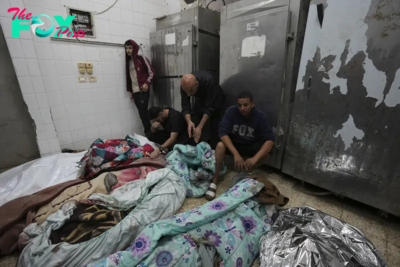
 World News3d ago
World News3d agoU.S. Vetoes U.N. Resolution Demanding a Cease-Fire in Gaza
-

 World News3d ago
World News3d agoPutin Signs New Doctrine Lowering Nuclear Weapons Threshold in Warning to U.S.
-
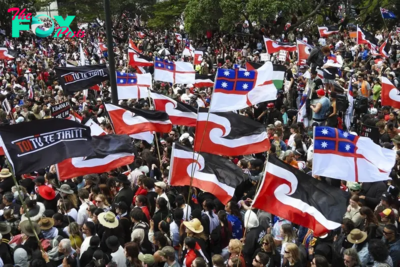
 World News3d ago
World News3d agoTens of Thousands Rally at New Zealand’s Parliament in Support of Māori Rights
